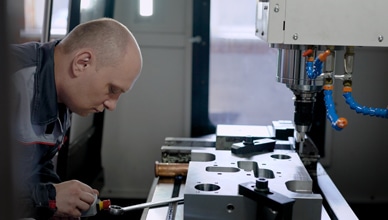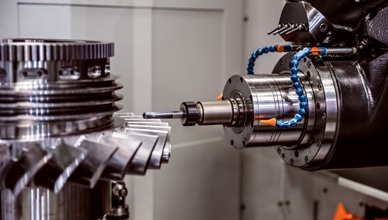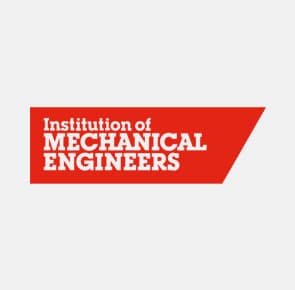What Does a Career in Mechanical Engineering Entail?
Mechanical engineering careers involve building, testing, and designing mechanical devices that include tools, powerful engines, and a wide variety of machines under research and development. Mechanical engineers design tools and can be researchers at the edge of technological innovation or parts of public agencies that check many things for safety and effectiveness. A mechanical engineer may work with electrical engineering specialists to solve complex engineering problems, create mechanical systems, and bring their prototypes to life.
Mechanical engineers work increasingly in computerized environments, and they are in demand as master- and doctoral-level candidates for teaching and advanced faculty driven research projects. Mechanical engineers reach to the edges of new technology in fields like robotics and bring improvements to existing machines such as automobiles. Mechanical engineering careers can provide an endless variety of work and problem-solving challenges. Those who are interested in attending a mechanical engineering program might want to include an online degree or online programs into their school search. You can earn a BS in mechanical engineering online, but you'll have to ensure that the engineering degree you will earn from your college program will be everything you need in terms of offering you academic excellence, financial aid, access to a mechanical engineering career, and more.

Components of A Successful Career In Mechanical Engineering
Mechanical engineers work in a highly interactive environment that involves many different disciplines, roles, and settings. The hard skills include education, knowledge, and technical abilities. However, personal traits or soft skills may also predict success.
- Creativity is needed for the development and design part of the career as well as the problem-solving activities that mechanical engineers must utilize. These versatile professionals work in a wide variety of settings.
- Math skills are essential to the basic functions of mechanical engineers. Mathematical precision and certainty are part of the mission whether designing, testing, or developing products, systems, or devices.
- Teamwork is a commonly needed attribute for mechanical engineers; a large portion of their typical workday involves working in teams or collaborations with engineers and other types of professionals.
- Communications in the form of written and oral presentations is also a critical element of successful mechanical engineering careers. They must be able to relate to audiences with little or no technical understanding as well as advanced engineering and technical professionals.
- Problem-solving is a big part of the career. Mechanical engineers must handle unpredictable situations brought to them by employers, clients, and on research and development or mechanical design projects.
Featured Online Programs
How to Become a Mechanical Engineer
- Apply to schools accredited by the ABET and/or their regional accreditor
- Get a bachelor’s degree in Mechanical Engineering
- Perform a supervised apprenticeship
- Get licensed if required by state law
- Apply for positions
Typical Mechanical Engineering Degree Requirements
 Associate degrees are usually two-year programs that do not provide a degree in engineering but in a related support field such as engineering technology. Associate degrees typically require 60 to 65 credit hours divided among general education and technical education.
Associate degrees are usually two-year programs that do not provide a degree in engineering but in a related support field such as engineering technology. Associate degrees typically require 60 to 65 credit hours divided among general education and technical education.
An online Bachelor’s mechanical engineering degrees might take four to five years and may require an ending project and internship for mechanical engineering graduates. They typically require 125 to 130 credit hours, with intense mathematics and science concentrations as required by most engineering programs.
Master’s mechanical engineering degrees establish expertise in the field. They require a bachelor of science mechanical engineering degree or one in a closely related field such as general engineering. This degree typically takes two years for completion and about 35 to 45 semester hours of coursework.
Typical Mechanical Engineering Certifications Needed
Engineers that seek to hold themselves out to the public must meet state licensing requirements for engineers. There are many voluntary certifications that may be useful for mechanical engineering careers which mechanical engineering graduates can focus on. Licensing requirements include an exam and supervised internships.
Schools approved by ABET for engineering accreditation prepare students for the Professional Engineer exam. Engineers may have to pass the Fundamentals of Engineering and Principles and Practice of Engineering tests as administered by the National Council of Examiners for Engineering and Surveying.
Academic Standards for Online Mechanical Engineering Degrees
The qualifications for pursuing an online associate or bachelor’s mechanical engineering degree focus on demonstrated ability in math and science. All applicants must have a GED or high school diploma. They must also be in good standing and in compliance with rules concerning student conduct. Students must take standardized tests like the ACT or SAT. Engineering schools will scrutinize the level of mathematics and science and assess the student’s performance in those subjects.
Also, once accepted into the program, most colleges and universities require that students adhere to a certain code of conduct, such as not cheating on tests or papers and keeping a certain GPA, usually over 2.5.
Exam/Experience Needed for a Mechanical Engineering Degree
 Experience is a necessary feature of a mechanical engineering resume, and employers wish to see a record of practical work experience such as internships. Many schools require internships or similar projects in their curriculum along with laboratory work to test student knowledge in real-world conditions. Mechanical Engineering courses and curricula prepare graduates to sit for professional engineer and state licensing exams. Mechanical engineers require licenses when they head out to the public as professional engineers.
Experience is a necessary feature of a mechanical engineering resume, and employers wish to see a record of practical work experience such as internships. Many schools require internships or similar projects in their curriculum along with laboratory work to test student knowledge in real-world conditions. Mechanical Engineering courses and curricula prepare graduates to sit for professional engineer and state licensing exams. Mechanical engineers require licenses when they head out to the public as professional engineers.
Mechanical engineering students can seek their education at three levels. High school graduates and GED holders can apply for admission to associate degree programs in the field of mechanical engineering. These two to three-year courses of study can provide basic education and prepare graduates to qualify for entry-level work in the field as assistants and technicians.
The other option for high school level applicants is to apply for a bachelor of science degree program at a four-year institution. The four-year program for a bachelor’s degree in mechanical engineering will equip graduates for employment as mechanical engineering professionals. In states that require licenses, they can sit for the state-sponsored professional engineer license.
If students already have an online bachelor of science in engineering, then they can apply for an online master’s program. The two-year master of science degree program will qualify students as experts in one or more areas of mechanical engineering. The master’s can open doors to teaching positions and further education at the doctoral and research levels.
Mechanical Engineering Fields of Study
Aerospace and Astronautical Engineering is the field of engineering concerned with spacecraft and aircraft. Aeronautics deals with engineering in the earth’s atmosphere and astronautics involves space travel.
Mechatronics is the intersection of electrical engineering and mechanical systems it borrows concepts from robotics, computer technology, controls, and telecommunications.
Manufacturing Engineering helps drive innovation and efficiency in the production of goods. Areas of concern to mechanical engineers include automated manufacturing, quality control, precision manufacturing, development of tools, and optimizing processes
Online Associate's Degree
The online associate degree in mechanical engineering will introduce the student to the field and equip them to work in low, entry-level positions. The online associate degree combines general education, math, science, and engineering coursework. The general coursework will ensure a solid foundation in writing, mathematics, physical sciences, and communications. The technical coursework will focus on technical writing, terminology, and the fundamentals of engineering.
Example Coursework for the online Associate degree in mechanical engineering:
- Fluid dynamics and thermodynamics
- Manufacturing processes
- Engineering software (CAD and CAM)
Online Bachelor’s Degree
The total coursework is between 125 and 135 semester hours depending on the school and the requirements for internship and practicum assignments. The program design calls for four-year completion, but many students take five years to finish the course and internship requirements. The curriculum includes general education like communications and writing which is also important for the mechanical engineer. The bachelor’s degree prepares students to sit for state examinations for licensed engineer professions.
Example coursework for the online bachelor’s degree in mechanical engineering:
- Introduction to Design
- Thermodynamics and Heat Transfer
- Manufacturing Processes and Machine Design
- Systems, Dynamics, Controls
Online Master’s Degree
The online master’s degree in mechanical engineering takes between 35 to 45 semester hours of coursework depending on the school and whether the program requires a thesis. The programs should align the student’s knowledge with current research and prepare graduates for specialization within the field of mechanical engineering. Current themes include human-centered design and design for sustainability. Beyond the traditional focus of manufacturing standards for costs and feasibility, modern practice requires consideration of social costs including usability, viability, and environmental impact.
Example coursework for the online master’s degree in mechanical engineering:
- Dynamics
- Micro-Electro-Mechanical Systems (MEMS)
- Robotics and Kinematics
- Materials and Stress Analysis
- Design for Manufacturability
Degree Level, Tuition and Costs
Online Associate’s Degree
| Degree Level | Tuition | Total Costs |
|---|---|---|
| Private | $3,600 | $14,000 |
| Public | $14,500 | $25,000 |
Online Bachelor’s Degree
| Degree Level | Tuition | Total Costs |
|---|---|---|
| private | $33,800 | $48,500 |
| public school, in-state | $11,200 | $22,500 |
| public school, out-of-state | $27,500 | $39,900 |
Online Master’s Degree
| Degree Level | Tuition | Total Costs |
|---|---|---|
| Private Schools | $31,500 | $44,500 |
| Public Schools | $9,900 | $19,500 |
Potential Careers & Salaries for Mechanical Engineering Grads
The facts that drive salaries in a career in mechanical engineering are experience and education. The Bureau of Labor Statistics show clearly the upward direction of wages as employees gain experience.
Education is the other driver of median salaries. There is a direct relationship between salary and educational achievement. From high school diplomas to doctoral degrees, the median salaries rise in step with educational achievement. Education and online education are proven methods to increase salary, lifetime earnings, and add further options for jobs and careers.
Mechanical Engineering Salaries by Occupation
| Median Career Salaries | Entry-Level | Mid-Career | Late-Career |
|---|---|---|---|
| Controls Engineer | $63,900 | $83,100 | $98,100 |
| Manufacturing engineer | $62,100 | $76,100 | $84,500 |
| Aerospace Engineer | $69,600 | $93,900 | $133,700 |
| Project Manager, Engineering | $64,600 | $90,500 | $115,600 |
| Automotive Engineer | $67,500 | $81,200 | $97,500 |
| HVAC Engineer | $58,800 | $75,000 | $86,300 |
Annual Median Salary by Occupation
| Occupation | Median Salary |
|---|---|
| Controls Engineer | $74,500 |
| Manufacturing engineer | $67,100 |
| Aerospace Engineer | $82,300 |
| Project Manager, Engineering | $89,200 |
| Automotive Engineer | $74,400 |
| HVAC Engineer | $65,800 |
Important Questions to Ask (FAQ)
How long does it take to earn a Mechanical Engineering bachelor’s degree online?
An online Bachelor's in Mechanical Engineering is a four-year degree. When students must complete internship requirements, the term of attendance often runs to five years. However, they can complete the degree in four or more years of online study, and many online mechanical engineering programs or general engineering programs arrange practical experience or internship assignments near the student’s home area.
Part-time attendance can extend the degree completion to five or six years. Many online students prefer to mix their classwork with jobs, business, or other obligations, and typically take more than four years. Online students can also accelerate the completion of the degree by taking extra courses and attending during summer sessions.
How much does an online Mechanical Engineering bachelor’s degree cost?
The costs for a four-year Bachelor of Science in Mechanical Engineering are not the same for every school or student. Across all institutions, the average costs should include tuition, books, room & board, and incidental expenses. These numbers can produce an annual estimate which would apply to four years of education. The average total costs range for private schools is $190,000. The average total costs range for in-state students at public schools is about $156,000. The average total costs of a degree at public schools for out-of-state students is about $85,000.
Find Online Mechanical Engineering Schools
Does the online school have the major(s) you’re considering?
 The choice of major is essential to reaching the student’s career goals. Students should carefully align their choice of major fields of study with their short and long-term career objectives. In the field of mechanical engineering, students need a solid foundation in design, systems, materials, and thermodynamics. They may also wish to focus on some of the broad areas of study within the field such as aerospace technology.
The choice of major is essential to reaching the student’s career goals. Students should carefully align their choice of major fields of study with their short and long-term career objectives. In the field of mechanical engineering, students need a solid foundation in design, systems, materials, and thermodynamics. They may also wish to focus on some of the broad areas of study within the field such as aerospace technology.
Students must make sure that the faculty expertise, educational resources, and course selection will match their idea of the mechanical engineering major. They must make sure that the majors available at the selected school promote progress towards their career goals.
How many students graduate “on time,” in four years?
The collegescorecard.ed.gov website offers graduation rates for nearly every school in the US. Across the US one can use an average figure that crosses all majors to determine the typical graduation percentage.
| Type of School | 4-Year Graduation Rate | 6-Year Graduation Rate |
|---|---|---|
| Public schools | 35% | 65.7% |
| Private schools | 53% | 68% |
The trend across the US is towards later graduation. Students may opt for lower course loads, and in some cases, crowded majors may force students to delay the completion of required courses. The impact may be more significant for the costs than for the educational results. Each added year of attendance increases the costs of a four-year degree by about 25%.
What kind of accreditation does the online program hold? How is it regarded in the field?
 Students must assess the school or engineering program accreditation status. A program or school with no accreditation poses a risk that the degree will not be as useful as it should be to help the student find jobs, higher pay, and further educational opportunities. Accreditation is a required qualification for schools that participate in the federal student loan program.
Students must assess the school or engineering program accreditation status. A program or school with no accreditation poses a risk that the degree will not be as useful as it should be to help the student find jobs, higher pay, and further educational opportunities. Accreditation is a required qualification for schools that participate in the federal student loan program.
In the field of engineering, the leading program accreditation agency is the Accreditation Board for Engineering and Technology (ABET). This Council for Higher Education Accreditation (CHEA)-recognized accreditation body accredits engineering programs at the baccalaureate and master’s level. Program accreditation by ABET has wide acceptance and makes a powerful combination with regional accreditation for the entire institution. ABET accreditation is recognized by CHEA and accepted in the US and internationally in engineering and many applied science programs.
Software, Technology and Skills Needed
Mechanical engineering is the broadest field of engineering as it involves research testing, design, manufacturing, and supports many government regulation functions. The hard skills that mechanical engineers need include in-depth familiarity with computers, operating systems, and standard software. Mechanical engineers spend a lot of time performing simulations, tests and making designs.
They should be at ease with computer-aided design in AutoCAD and 3-D types. They must operate Microsoft office for spreadsheets and reports. They must be able to read diagrams, flow-charts, and project documentation quickly
Mechanical Engineering Scholarships
The below-listed items describe some noteworthy mechanical engineering scholarships.
-
Society for Manufacturing Engineering Foundation Scholarships
Amount: $1,000-$6,000
Deadline: February 15
These scholarships support students pursuing a degree in mechanical engineering, manufacturing, or a closely related discipline. Students must have a minimum GPA of 2.0 although most awards require a 3.0 GPA. Students must be citizens or legal residents of the US or Canada. Awards can support enrolling first-year students, undergraduates, or graduate students with a qualifying major.
-
The Society for Automotive Engineers Scholarships
Amount: $1,000-$10,000
Deadline: March 15
The society offers aid designated for first -year, sophomore, junior, and senior year applicants. There are four first-year scholarship awards, five second-year student awards, seven third-year awards including the Kentucky students award, and nine senior year awards.
-
The American Society of Mechanical Engineers Scholarships
Amount: Various
Deadline: March 7
The ASME offers 25 undergraduate scholarships. The requirements for grades, eligibility, and award amounts vary with each fund.
-
ASME Standards & Certifications (S&C) Scholarship
Amount: Up to $10,000 per year
Deadline: March 7
The S&C Memorial Scholarship fund honors ASME staff members and their contributions. The S&C scholarship has one award up to $10,000 per year and up to three years including one graduate year. The program supports a multi-year term of study beginning in the first or second undergraduate year. Eligible applicants will major in mechanical engineering, mechanical engineering technology, or related bachelor of science field. The award decision criteria includes scholastic ability and a demonstrated potential to contribute to the mechanical engineering profession. Students must have a minimum GPA of 3.0 on a four-point scale and remain in good standing.
-
SAE Graduate and Ph.D. Scholarships
Amount: Various
Deadline: March 1
Society of Automotive Engineers awards scholarship support for master’s and doctoral level students in the SAE Heinz C. Prechter Automotive Excellence Scholarship, the Yanmar/SAE Scholarship, and the SAE Doctoral Engineering Scholarship. The Prechter Award supports entrepreneurship and innovation. The Yanmar/SAE award requires attendance at an ABET accredited school or program and research on subjects including conservation, and power generation. The SAE Doctoral award supports students planning a degree and career in teaching in the field of engineering.
Professional Mechanical Engineering Organizations
- ASME
- IME
- IAPE
- SAE
- SME

ASME
The American Society of Mechanical Engineers
The American Society of Mechanical Engineers is a membership organization that promoters multidisciplinary mechanical engineering. Mechanical engineering is both an art and a science that well-trained professionals practice in a wide range of settings across the developed world. Students can benefit from peer-reviewed publications, information on trends, and educational resources.

IME
The Institution of Mechanical Engineers
The Institution of Mechanical Engineers is an international membership organization that represents a global professional community. The organization encourages participation in the profession and promotes career development for mechanical engineers. The group provides career and continuing education. Students can join and benefit from exposure to thought leaders, networking opportunities, and educational resources.

IAPE
International Academy for Production Engineering
International Academy for Production Engineering (CIRP) is an international association for production research. This essential commercial and business area of study fuels the manufacturing base in advanced nations and the developing world. The organization works to promote best practices in design, optimization, controls, and processes. The work includes machines and systems. Membership is by invitation, and it attracts many affiliated companies and individual contributors. Students can interact with the leadership organization and benefit from information, trends, and networking opportunities.

SAE
Society of Automotive Engineers
Society of Automotive Engineers is an authoritative source of standards for several industries and industrial classifications. The organizational goal is to advance transportation and mobility methods for the world’s population. The organization sponsors education for mobility professionals and programs to connect them to the needs of societies. The association works through more than 128,000 professionals and experts in aerospace and automotive vehicles. The organization promotes voluntary consensus standards.

SME
Society of Manufacturing Engineers
Society of Manufacturing Engineers is an organization that helps manufacturers innovate and expand by promoting manufacturing technology. The Society uses its offices to connect manufacturers for greater coordination and consistency for consumer benefit. SME promotes workforce training and development. Students can benefit from membership in the technology-oriented association. They can take advantage of information and educational resources that reflect the cutting edge of manufacturing technology.
Choosing an Accredited College
University HQ recommends selection of an accredited school, college, or university for your education in mechanical engineering. Accreditation is an assurance of high-quality education for the student, the potential employer, and other educational institutions. In the field of engineering, there are both regional and specialized accreditation that the student should note.
The regional accreditation agencies have approval from the Department of Education, the Council on Higher Education Accreditation, or both. The regional accreditation agencies assess the entire institution and certify their quality. The Department of Education and CHEA also authorize program accreditation, and the ideal combination is to select a regionally accredited school and mechanical engineering programs that have program accreditation.
ABET is a widely used accreditation for engineering and science-based education. ABET is cognized by CHEA as an official accrediting agency. It also has wide acceptance among employers, international groups, and many countries. With all non-DOE accreditation, you must carefully examine the acceptance and determine the level of respect given the organization’s symbol of approval. Accreditation affects the acceptance of your mechanical engineering degree and college credits and as proof of quality education.
Online vs. On-Campus vs. Hybrid
Students can choose the way they attend college and pursue a mechanical engineering degree. Students can select on-campus education, distance learning online, and a mix of both also known as a hybrid program.
On-campus learning is the traditional style of teaching in classrooms and lecture halls. Students gather at the same place and time and learn as a group. This type of education is called synchronous because everyone learns together.
Online education is asynchronous, you can access and interact with the course content individually, and not with a group. Online learning is convenient and flexible. You can set a schedule that meets your needs and preferences. Online education is ideal for people that have jobs, run businesses, or do not wish to attend on a campus setting.
Hybrid programs combine on-campus and online coursework to allow participants to access education in the way, and at the time, they prefer. Students can take courses on-campus and online in a pattern that meets their needs. Hybrid education programs can help individuals enjoy the benefits of association with other students and the campus community. The hybrid program helps them attend regular classes to complete a degree while holding a job, running a business, or managing family obligations.
Frequently Asked Questions
How much does an online degree in mechanical engineering cost?
This answer depends on how and where you take your courses. If you earn an associate degree from an inexpensive school and transfer all your credits to a four-year institution, your bachelor’s will cost less. If you attend online with a program that is less expensive than an in-person program and save money on gas, rest, etc., then you will save money. If you attend public institution and earn scholarships and grants instead of attending a private institution and paying for your degree with loans, then you will save money. Online degrees are not necessarily always the cheapest option just because they are online.
How much can you make with a mechanical engineering degree?
With a bachelor’s degree in mechanical engineering, the average worker makes around $82,000/year. However, those with skills in specialty areas can make much more than others. Skill with gas turbines or software testing could earn you as much as 60%+ more on average.
Who should pursue this degree?
Those who excel in math and physics early in their academic careers are the most likely to succeed in the field of mechanical engineering. This field will also allow you to be creative because it’s focus is the creation of tools that can be used to do whatever the client needs. If you are looking for something to provide you access to a huge list of career options that can be fulfilling in multiple ways, mechanical engineering is an excellent option.
Does the College Have Post-Graduate Job Placement Help & Assistance?
University HQ places priority on post-graduate placement and assistance. Students should consider the level of resources committed to job placement and career counseling among their selection criteria. A robust career counseling and job placement program is an advantage for students. Career guidance should begin with the first semester and students should have access to counseling and coaching at points along the way to graduation. For example, in the mechanical engineering occupations, employers place value on internships and other hands-on types of experience. Students armed with this information can make better choices for courses, networking, and finding opportunities to learn in real-world settings.
Career assistance should begin at the earliest time with advice and information. Students must navigate a complex array of courses and elective study choices to graduate on time. It is also important to graduate with the background needed to achieve career goals.
Why You Need to Consider the Overall National Rankings of the College and The Effects on Your Career or Salary
The likely impact of college rankings is to boost salary among graduates. Data from the College Scorecard website demonstrate many graduates from top-ranked schools enjoy higher average salaries when measured ten years after graduation. College rankings do not predict higher salaries for everyone, and reputation is a difficult factor to measure. When you are selecting colleges and there are two more or less equal schools, then you can reasonably use rankings as a deciding factor in the final selection.
The idea is to consider rankings, but not to be guided by them. The student experience and success will more likely be a product of the fit between the student’s preferences for learning and that which the school provides. Student success can depend on a number of immediate factors such as a supportive learning environment, available educational resources, and the ability of faculty members to spend time with students.
Search All Programs
